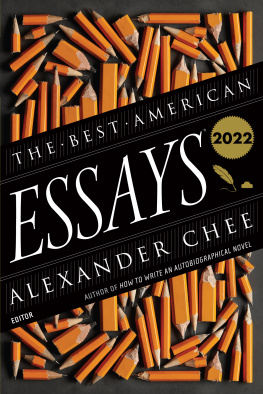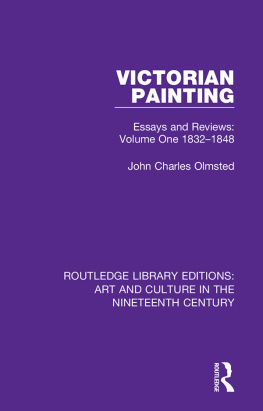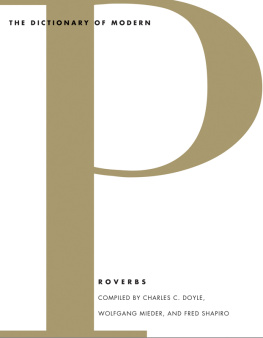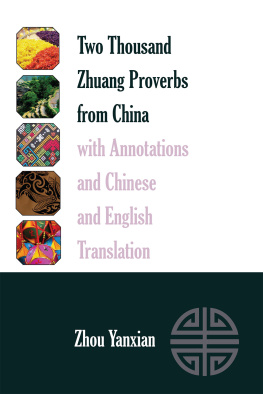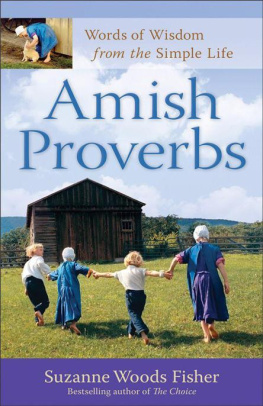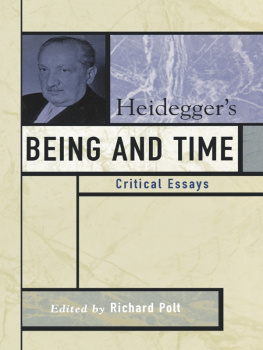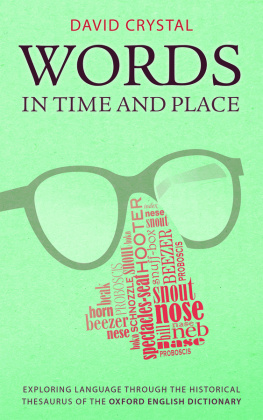ROUTLEDGE LIBRARY EDITIONS: FOLKLORE
Volume 18
WISE WORDS
WISE WORDS
Essays on the Proverb
EDITED BY
WOLFGANG MIEDER
First published in 1994
This edition first published in 2015
by Routledge
2 Park Square, Milton Park, Abingdon, Oxon, OX14 4RN
and by Routledge
711 Third Avenue, New York, NY 10017
Routledge is an imprint of the Taylor & Francis Group, an informa business
1994 by Wolfgang Mieder
All rights reserved. No part of this book may be reprinted or reproduced or utilised in any form or by any electronic, mechanical, or other means, now known or hereafter invented, including photocopying and recording, or in any information storage or retrieval system, without permission in writing from the publishers.
Trademark notice: Product or corporate names may be trademarks or registered trademarks, and are used only for identification and explanation without intent to infringe.
British Library Cataloguing in Publication Data
A catalogue record for this book is available from the British Library
ISBN: 978-1-138-84217-5 (Set)
eISBN: 978-1-315-72831-5 (Set)
ISBN: 978-1-138-84425-4 (Volume 18)
eISBN: 978-1-315-73052-3 (Volume 18)
Publishers Note
The publisher has gone to great lengths to ensure the quality of this reprint but points out that some imperfections in the original copies may be apparent.
Disclaimer
The publisher has made every effort to trace copyright holders and would welcome correspondence from those they have been unable to trace.
WISE
WORDS
Essays on the Proverb
edited by
Wolfgang Mieder
GARLAND PUBLISHING, INC.
New York & London / 1994
Copyright 1994 by Wolfgang Mieder
All rights reserved
Library of Congress Cataloging-in-Publication Data
Wise words / [compiled] by Wolfgang Mieder.
p. cm. (Garland folklore casebooks; v. 6)
(Garland reference library of the humanities; v. 1638)
Collection of twenty essays previously published in various journals and books between 1973 and 1993.
Includes bibliographical references.
ISBN 0-8153-0942-2
1. ProverbsHistory and criticism. I. Mieder, Wolfgang. II. Series.
PN6401.W58 1994
398.9dc20
943960
CIP
Printed on acid-free, 250-year-life paper
Manufactured in the United States of America
For MATTI KUUSI
on his eightieth birthday
Contents
Shirley L. Arora
Peter Grzybek
David Cram
Michael D. Lieber
Kwesi Yankah
Neal R. Norrick
Tim B. Rogers
Alan Dundes
James Obelkevich
Margaret A. Sullivan
Wolfgang Mieder
Charles L. Briggs
Gary H. Gossen
Carole R. Fontaine
Roger D. Abrahams and Barbara A. Babcock
Daniel R. Barnes
Pack Carnes
Albert B. Friedman
Wolfgang Mieder
Jess Nierenberg
The materials of folklore demonstrate remarkable variation. Each of the cultures which share a particular item of folklore, for example, a myth, a folktale, a custom, a folk belief, has its own special version of that item. Sometimes individuals within a given culture will have their own idiosyncratic variations within the larger culturewide tradition. Students of folklore who study the folklore of only their own group may fail to appreciate the range of variation in folklore. By bringing together different studies of the same item of folklore, I hope to provide a means of demonstrating both the ways in which folklore remains constant across cultures and the ways in which folklore is inevitably localized in different cultural contexts.
With respect to the distribution of an item of folklore, there are two all too common erroneous assumptions. The first assumption is that the item of folklore is peculiar to one culture. Those anthropologists, for example, who are unwilling to be comparative, typically assume or assert that a given folktale is unique to their people, meaning the people among whom they have carried out their fieldwork. The critical theoretical point is that one cannot tell whether or how a folktale is really unique to one culture without knowing if the same tale is found in other cultures. Once one has examined other versions of the tale, then and only then can one comment intelligently on just how a particular version of that tale reflects the culturally relative characteristics of a given society.
The second erroneous assumption, equally irritating to professional folklorists, is that a given item of folklore is universal. This is the opposite extreme from the first assumption. Rather than presuming that the item is unique to one culture, the universalist (typically a literary or psychologically oriented student) simply posits the existence of the item in all cultures. Yet the facts do not support this position any more than the other. Most items of folklore have limited areas of distribution. For example, there are Indo-European folktales reported from India to Ireland, but most of these tales are not found among Australian aborigines, the peoples of Melanesia and Polynesia, South American Indians, etc. Similarly, there are folktales found in North and South American Indian tradition which are not found in Europe. If one takes the trouble to check the sources cited by universalists, he or she will normally find little if any reference to the traditions of the peoples of New Guinea, native South America, and sub-Saharan Africa among other areas.
One cannot say a priori what the distribution of a particular item of folklore might be. One needs to consult the scholarship devoted to the item before venturing an informed opinion. Chances are great, however, that the item will not be limited to a single culture nor will it be worldwide. One aim of the Folklore Casebook series then is to show by example something about the range and spread of individual items of folklore.
Questions about the geographical distribution of an item of folklore are not the only ones worth asking. Even more important are questions about meaning and interpretation. Far too often, students of folklore simply collect and report. Pure descriptions of data are surely a precondition for serious study, but they do not offer a substitute for significant analysis. Unfortunately, the majority of writings about a particular item of folklore never attempt anything more than mere description. The discipline of folklore began several centuries ago with the collection of antiquities and presumed survivals from earlier periods. It was not until the late nineteenth century and especially the twentieth century that the crucial study of how folklore functions in context may be said to have begun. In most cases, the application of sociological, anthropological, psychological and other theories and methods to folkloristic data has yet to be undertaken. One reason for this is that most theorists in the social sciences are just as unaware of the nature of folklore data as folklorists are unaware of the theories and methods of the social sciences. One intent of the Folklore Casebook series is to bring data and theory togetherat least for students of folklore.


